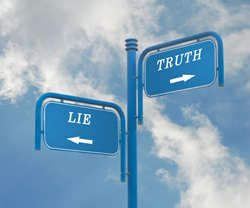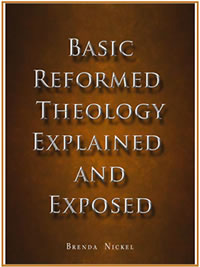“Descent Into Error” Part 5
Continued from “Descent Into Error” Part 4
The Bible as a spell-casting device
 At one point it was decided, without me knowing it, to do what Tony Miano was doing in his sector of the witnessing universe. Tony suggested that Christians read sections of the bible to a crowd. This he called Project Ezra. He got the idea from reading Nehemiah where the law was read to the people and 1 Timothy 4:13 which says to read the bible publicly. The ESV and NASB version of 1 Timothy 4:13 says to read the bible publicly. The King James and older versions do not render that verse to say the word “publicly.” It simply says to read it and the context is read it among other Christians, not unbelievers.
At one point it was decided, without me knowing it, to do what Tony Miano was doing in his sector of the witnessing universe. Tony suggested that Christians read sections of the bible to a crowd. This he called Project Ezra. He got the idea from reading Nehemiah where the law was read to the people and 1 Timothy 4:13 which says to read the bible publicly. The ESV and NASB version of 1 Timothy 4:13 says to read the bible publicly. The King James and older versions do not render that verse to say the word “publicly.” It simply says to read it and the context is read it among other Christians, not unbelievers.
I thought this was a bit strange to read the bible to unbelievers who according to Calvinists cannot understand it, but decided to give it a try. The concept is that “God’s Word will not return void” so if I stand up and say the words of God to the world this will …do something…no one knows what though. But wouldn’t that depend on the passage and the audience it was intended for?
The bible says God’s word will return what God intended. Did God intend for me to witness to this crowd today by reading a passage aimed at the Jews? Or perhaps Romans 1 where God says He will abandon those who reject the knowledge they have about Him? Or reading a Psalm where David is declaring the wonders of God? Why would that help a sinner realize his/her sinful state before God? What happened to preaching “law to the proud” and “grace to the humble?” Don’t you have to know if someone is humble before preaching Grace or proud before teaching law? Isn’t that what Jesus and the Apostles did? Didn’t they know their audience and then preached accordingly?
Its almost as if the bible is magic and when its spoken magical things will happen. While I believe fully in the power of God and His Word to convict people of sin the attitude in the group was simply “Read the bible, God’s Word will do its work, and I don’t have to know if this passage applies to anyone hearing this…just read it.”
So if I read “Jesus wept” to a sinner they will repent or something? Or if I say the word “the” to a sinner that will accomplish what God intended? The word “the” is in the bible after all. Wait, are you thinking I am being ridiculous now? “Of course I can’t say the word ‘the’ and something will happen even if its God’s Word, thats silly.” Yes, it is. Its silly because instinctively you know there is a “limit” as to how the Word of God can be used.
The bible is not a spell-casting device where any words from it will return something to God automagically.
Whatever happened to discernment, wisdom and knowledge? Context of audience? Or for that matter, common sense?
Have you noticed when the Apostles or Jesus preached to crowds of people they meet people where they are? In other words, if the Apostle Paul is talking to Jews He speaks from their perspective, and teaches them from what they already know, such as the Old Testament. Or on Mars Hill when he speaks to the greek philosophers he speaks from their perspective, which is the “unknown god.” Each sermon eventually leads to calls of repentance and faith in God.
What made this whole thing even weirder is the soon-to-be-Calvinists on our witnessing team would never preach grace to an unrepentant prideful sinner because that amounts to throwing pearls before swine, so why then would we read entire bible chapters to sinners which describe God’s grace to people who, according to them, hate God and don’t want it?
You don’t find the Apostles randomly picking scriptures out of context of the audience to read to the unsaved. You do find them quoting the bible, but these verses are for a specific audience on a specific topic.
Having said all of this if someone from the crowd asks questions because of the reading or perhaps further conversations are started because of it then thats a good thing. But that never happened as far as I know. Why were we doing this again? Because Tony Miano said so? Because the witnessing team cares more about following the teachings of Calvinists, their own perseverance through obedience, and public displays of pride through reading then they do reaching the lost? Are we supposed to be impressing the unsaved with a united front and somehow that will cause them to repent?
This is not what I signed up for.
Bible studies according to Calvin
The bible studies I attended were led by people in the witnessing group who were becoming Calvinists. I would hear Calvinistic interpretations used to explain certain verses. For example, the people at the time of the flood are described in the bible as “every imagination of their heart was evil continually” which mean’t to them “the entire human race is like this” from the beginning until now. No, the people at the time of flood are like this, not everyone throughout time. This is an example of how Calvinists overgeneralize frequently applying their doctrine to all verses.
Or they couldn’t understand why Lot was in Sodom and still be considered righteous. Why would Lot be seen and live in a place like Sodom? After all, Calvinists talk about sin all the time so they can’t imagine Lot living in a sinful place. “A true believer would never do that” they say. I’m not sure why Calvinists would say that about Lot, Calvinists live in depraved cities as well.
Aren’t there Christians living in Las Vegas? Does this mean they aren’t considered righteous by God? Aren’t most cities in the world ungodly? Don’t we all have to live somewhere? Wasn’t Sodom the only place in the area that had people? Would Lot rather live in the wilderness or in a populated area? The bible says Lot was grieved to see what the wicked were doing in the city. Sounds like Lot wasn’t joining the ranks of the ungodly but perhaps was living there to preach to them? In fact, that is what the scriptures show about Lot, not the opposite.
While these ideas don’t seem that serious there were other interpretations of verses during bible study which were. Such as Abraham was a pagan and suddenly God appears and he believes. This must mean God regenerated Abraham. Or the Apostle Paul where God appears to Him and “Shazam”, Paul believes now. This must mean Calvinism is true. Obviously Calvinists read the bible according to a filter called TULIP and they do not correct their interpretations when contradictions arise, they keep believing in them.
I started to wonder why I am attending a bible study where the teachers don’t know what they are teaching.
The unknowable will of God
Sometimes Calvinism was discussed during these years of evangelism. If someone asked the Calvinists in the group questions about the doctrine someone was usually happy to assist. This bothered me a great deal because Calvinists are confused about the god they serve. How then can you teach others this doctrine? Are you trying to confuse the body of Christ?
I’ve spoken with a few people who tell me after they studied the doctrine they wondered if they were one of the “elect.” Maybe they are, maybe they aren’t. After all, salvation is not by FAITH but by ELECTION. Since God supposedly chose you for no reason at all how would you know? Perhaps God hates me instead. Perhaps I have a false faith that looks like the real faith. What is God’s Will for your eternal life?
What about family members and friends? Will God elect them? Does He eternally love them? Did Christ die for them? Will God pass them over to suffer in hell for eternity to prove His sovereignty? Is Uncle Larry’s hostility towards God something God ordained? Why doesn’t God give Uncle Larry faith and repentance? Why does God ask Uncle Larry to repent and believe but never gives him the ability to do so and then gets angry at Larry for his unbelief?
If a person has a relationship with the God of the universe shouldn’t you know God well enough to know the answers to most of these questions?
Its a tragedy that people disciple new believers with contradictions. This is irresponsible teaching which causes much confusion for believers, especially someone who is new in the faith. Does the bible say to teach contradictory doctrines to new believers to the point where God’s Will is “unknowable” making their relationship with Him uncertain?
Debates cause division among Christians?
 At this point I was witnessing frequently either by myself or with one other person who was not a Calvinist. I wasn’t part of the “inner circle of hidden wisdom” so I was becoming an outcast. It was becoming more difficult to worship and witness with people whose ideas of God’s character are so opposite of mine. I decided to start challenging Calvinism publicly on facebook without mentioning names or churches.
At this point I was witnessing frequently either by myself or with one other person who was not a Calvinist. I wasn’t part of the “inner circle of hidden wisdom” so I was becoming an outcast. It was becoming more difficult to worship and witness with people whose ideas of God’s character are so opposite of mine. I decided to start challenging Calvinism publicly on facebook without mentioning names or churches.
After a time the soon-to-be-Calvinists on the team started to accuse me of causing “division” among “Christians.” This was an interesting thing to say for several reasons:
1) The people I was debating on facebook are people they do not know. How would they know they are “Christians?”
2) This is America, am I not allowed to debate on my own facebook page?
3) Calvinists do not know who the elect are even if they have faith, only God does. How they would know I am causing division among “Christians?” Do they not believe in tares among the wheat? Do they not believe their own words that only God knows who the elect are? Perhaps I am not a Christian. Perhaps some of them are not. Perhaps none of us are. Only God knows…right?
They also said having public arguments among Christians is “bad for the unsaved to see.” Its equivalent to “dragging Christ’s name through the mud.” I found this argument just as strange as the first one. The unsaved, according to them, cannot believe the truth. Our arguments will not push sinners further away from a truth they cannot know. Furthermore this is something THEY should be concerned about more than me. I am not the one depicting God’s character as a prejudical hater of men who takes favoritism on a few nor as an unloving sadist who enjoys creating people to torture in hell for the sole purpose of proving he is the boss. Who is dragging Christ’s name through the mud now? I wonder how Christ feels about that? I can tell you HE DOESN’T LIKE IT.
During this time one of the Calvinists in our group sent everyone an email. It had this verse in it.
Proverbs 6:16 These six things the Lord hates, Yes, seven are an abomination to Him: 17 A proud look, A lying tongue, Hands that shed innocent blood, 18 A heart that devises wicked plans, Feet that are swift in running to evil, 19 A false witness who speaks lies, And one who sows discord among brethren.
The email went on to say that God hates it when we “sow discord among brethren.” This Calvinist was not on facebook nor was he involved in any of the discussions. I privately emailed him and asked if he sent this email because of the debates on facebook. He said “No.” I then asked him what prompted this email and he refused to tell me. This was odd. You send everyone an email but you won’t tell me why when I ask? Are Calvinists experts at hiding their true intentions? All I want is an answer.
At the time I found the verse he used interesting, because out of the seven things God hates TWO OF THEM ARE LYING. This immediately brought my mind to how Calvinists are lying about God’s character and nature. It would have been better if he read the verse himself and heeded its warnings about lying.
Another verse I was hearing about was Romans 16:17 which says:
17 Now I urge you, brethren, note those who cause divisions and offenses, contrary to the doctrine which you learned, and avoid them.
Calvinists tell me I am causing “divisions” by arguing against Calvinism therefore I should be avoided. Did you notice the verse doesn’t say that? Does the verse say to avoid people who are causing division because of debates? No, it doesn’t. It says to avoid people who have contrary doctrine because the doctrine is causing division!
I’ve had Calvinists on facebook call me an “idolator”, “blasphemer”, “I believe in a false gospel of free-will”, “heretic” and so forth because I do not believe in what they teach about God’s character and nature. And you know what? Calvinists SHOULD say that. We DO NOT believe in the same doctrine concerning God’s character and nature.
My final challenge went unchallenged.
 Over time I asked these Calvinsts the following questions.
Over time I asked these Calvinsts the following questions.
If someone says “I believe in faith alone Christ” but then also says “God is not a trinity” thats wrong. But is the idea describing a different god? Yes. Why? Because God is a trinity. His trinitarian nature is part of His essense.
If someone says “I believe in faith alone in Christ” but then also says “God does not know the future free choices people will make” thats wrong. But is the idea describing a different god? Yes. Why? Because God does know what people will do before they do it. His omniscience is part of who God is.
If someone says “I believe in faith alone in Christ” but then also says “God is a God of love and little judgement…He only sends really bad people to hell like Hitler” thats wrong. But is the idea describing a different god? Yes. Why? Because God is perfectly holy and He will punish ALL sin, not just really bad sins. His perfect holiness is part of who He is.
If someone says “I believe in faith alone in Christ” but then also says “God is a God of judgement and He eternally loves only a few thats wrong. But is the idea describing a different god? Yes. Why? Because God loves all equally otherwise He isn’t ALL LOVING. His perfect love is part of who He is.
What is your God like?
While it is true there are many people who seemingly believe in “Christ alone” I would argue which “Christ” do you mean? The one who isn’t a trinity? Who doesn’t know the future? The “Christ” who isn’t very holy? The “Christ” who isn’t eternally loving to most people?
Its interesting how slight variations in God’s character can turn the God of heaven into someone completely different. Is it ok to suggest God is more loving than He is holy? How about the reverse? Is it ok to suggest God is more holy than He is loving?
Its idolatry to many Calvinists to suggest God is more loving than He is holy, but why is it not idolatry when God’s attributes are reversed? God is more holy than He is loving?
Lets be consistent with what we consider “essentials” of the faith!
Christians should love one another and we are to have the same spirit…to be as one. As Ephesians 4 states, there is “4 There is one body and one Spirit—just as you were called to one hope when you were called— 5 one Lord, one faith, one baptism; 6 one God and Father of all, who is over all and through all and in all.”
Why is God telling me He died for all and they are telling me He died for some? Why is God telling me He doesn’t take pleasure in the death of the wicked and they are telling me God DOES take pleasure in death of the wicked? Why is God telling me I am saved by faith and they are telling me God saves people by electing them before they have faith?
The answer is simple, we have different gods with different Spirits.
At this point you might think I am implying Calvinists or my exfriends aren’t saved. I have no idea if they are. I am not writing this article to suggest they are or not. At best they are self-deluded and deceived. It takes many years of training to cause self-delusion. You have to be taught to… not think, to embrace a contradiction as if its true.
Perhaps deep down they are struggling with this doctrine. I understand human beings are complex and belief systems take hold differently in each person. Some do not actually internalize their beliefs but simply go along with it because its the best option. Some do not take the doctrine to its logical conclusions or even if they do they don’t believe the final outcome, which means they are fighting it. This is why I say I don’t know if they are saved or not. Only God knows for sure.
What would have helped the situation between me and them is they should have answered my questions. And when I say answer I mean an actual ANSWER. Answering a question with “Its a mystery” or “Who are you to question God” is not an answer, its a way of denying yourself accountability. Basically they believe in ideas they cannot prove. This is believing in fables rather than rightly dividing the word of truth. I do not see in Scripture where the people of God are to embrace contradictions, I see we are to do the opposite… rejecting anything that contradicts God’s Holy Word…isn’t that right? Since they are not “willing” to admit Calvinism is wrong my questions will never be answered. Because all the answers to my questions come down to one answer only…Calvinism is not true.
Finally the Calvinists in the witnessing group asked to be taken off our website. They also “defriended” me from Facebook. Who is doing the “dividing” now?
People split into those who oppose Calvinism and those who don’t. There was one opportunity where I met with two people at a Panera Bread to discuss the issues but my questions were again ignored. While the meeting ended well I was never again invited back to the bible study I once attended so I decided to cut all ties with them. They act like the god they serve, taking favoritism on a select few.
Today they probably think I am not a Christian or perhaps I am, but a trouble maker. All I wanted from them was for my questions to be answered. Instead I realized they have no answers, their ideas on God are contradictory, they are willing to confuse others with doctrines they don’t understand, and they are more interested in showing themselves and the world how lucky they are to be elect than loving every human being as God truly does, with eternal love.
I am thankful to God for pulling me out of the witnessing group I started and protecting my heart from a doctrine that depicts God’s character and nature as the god of calvin is portrayed. I have always thought the group was being tested by God to see if they love each other more than the Lord. So far they are failing the test.
The doctrine they embraced will eventually destroy your love for the lost whom Christ died for. It will eventually elevate your pride with special hidden knowledge of God that only the Calvinist elect know. It will cause you to question your salvation in Christ because the only way you can know if you are elect is to persevere. This is a far cry from the true gospel that states I am not saved by my works, I am saved by my faith and in believing God will follow through His promise of salvation to me.
Near the end I told one of them “your view of God has changed”. He replied, “It has.”
Yes…it has indeed.
Let us be careful to build correctly on the foundation Christ has laid.
1 Corinthians 3:10
9 For we are God’s fellow workers; you are God’s field, you are God’s building. 10 According to the grace of God which was given to me, as a wise master builder I have laid the foundation, and another builds on it. But let each one take heed how he builds on it.







“Have you noticed when the Apostles or Jesus preached to crowds of people they meet people where they are? In other words, if the Apostle Paul is talking to Jews He speaks from their perspective, and teaches them from what they already know, such as the Old Testament. Or on Mars Hill when he speaks to the greek philosophers he speaks from their perspective, which is the “unknown god.” Each sermon eventually leads to calls of repentance and faith in God.”
I love this. It reminds me of the repeated lesson learned from every teacher of writing to “consider your audience”. This is true when writing and true when witnessing. In fact, this is what makes witnessing so wonderful. The Lord brings to mind the words to say, the experiences to share, the relevent scripture. This is the “human element” that brings about great joy in witnessing. No witnessing encounter is the same because of it.
I saw a couple of the arietlcs at monergism.org, and they are somewhat helpful (although disdainful of dispensationalism, one article was written by Hendrix was done in a positive way to assist’ Amyraldian dispensationalists to turn from their waywardness and embrace Limited Atonement/Particular Redemption. Although I already do accept this as being not only biblical but crucial to understanding the Doctrines of Grace [as does John MacArthur and Phil Johnson], I don’t arrive at my conclusions the same way that Covenantalists do with regard to their grace/works/redemption’ matrix. We all agree that the doctrines are biblical regardless of the hermeneutic model’ we employ as it seems that that we both use hermeneutics the same way in soteriology with exception to the covenants of Covenantalism, and still exposit from the Scriptures that Particular Redemption is true!).As an aside, I’ve already viewed the DVD course that covers Limited Atonement. Although I believe that Dr. Burggraff represented the Particularists well, I don’t think that he is convinced that the Scriptures teach LA/PR. There were some inconsistencies in his presentation of his apparent belief in General Atonement (he doesn’t like the term universal’ . one only wonders why!). I think that many of the Scripture passages that supposedly support’ general atonement would apply to other doctrines, or apply to the call’ of the Gospel rather than limiting the atonement. We do believe, as in the Synod of Dordt, that the atonement of Christ is sufficient for all, but efficacious for the elect (those who believe’). I wonder at why generalists don’t understand the distinction. That’s why Phil Johnson’s article was a gem, IMHO. Not only was Phil’s history great, but also his exegesis particularly (no pun intended) on 1 John 2:2 s relationship to the other passage in the Gospel of John (I believe it’s in chapter five). Christ died *especially* for the elect, but His death was sufficient for all (but all aren’t elect, thus we have many’, not all).OK, I’ve gone on long enough here. I have some more study to do. Thanks for the links, though. If you scour some from dispensationalists in support of LE/PR, let me know!
The people who turned into Calvinists on my witnessing team believed Christ died for some because He loves only them eternally. Everyone else He doesn’t love eternally. However when I ask them whether their sons, daughters or relatives are hated by God their Calvinism disappears. Its easier to damn people you don’t love.
I thoroughly enjoyed reading these pages about the issues of false doctrines and division in the body of Christ. Very well expressed.
Thanks for reading…I’m glad it was helpful.